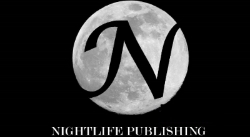A few months back, I
suggested that independent
publishers could improve the quality of their books by using a quality
control process that was similar to systems used by the major publishing
houses. Now that my
company is preparing to release its first full length book, I decided to
take my own advice and recruit a team to help me. This is the story of my first use of beta readers and what I learned
from them.
Beta readers have always
been common in publishing for both new and established authors. Stephen King
uses them, Anais Nin used them. Shakespeare probably had a few beta readers
testing his stuff out. I see it as part taste test, part marketing focus group
and part reality check. While every publisher does it differently, I decided my
beta test would combine different types of people. I thought that would give me
the most honest assessment of the manuscript.
The Test Group for Smooth Operator
- The group consisted of seven adults; four women and three men.
- Half the group I knew personally, the other half I only knew from linked in and good reads.
- A few were older than me, the rest were younger.
- Some expressed an avid interest in crime thrillers, some didn't read very much in the genre.
- About half the group consisted of writers or editors themselves, the other half were purely readers.
I gave everyone about a
month to read the book (about 75,000 words) and asked five focused questions
about their opinions. I gave them the option to write more, but I felt the
questions would be a good guide for feedback. None of the beta readers were
paid.
1) On a scale of 1-5, I would rate
this book a: ___
2) Would you be satisfied with this
book if you paid $3.99 for it? ____
3) Would you read the sequel to this
book? ____
4) Would you recommend this book to
a friend or enemy? ___
5) If there is any author that this
book reminds you of, please name that author (none is a completely acceptable
answer) ____
The Results
- Half the group (4 people) read the book and completed the survey. The rest didn't have a chance to read or finish it.
- The response was positive across the board in terms of the overall quality of the prose with one minor exception, namely
- There was a split of opinion concerning the introduction. This is worth mentioning for two reasons. First, I tried to do something different by breaking the fourth wall to generate more interest. One reader liked it, the other disliked it and the last two didn’t bring it up at all. The second reason why that is worth mentioning is based on my reaction to the split. Stephen King's opinion in his book On Writing when it comes to differing views between beta readers is that "the tie goes to the writer." so I decided to leave the intro the way it is and see what happens when the book is released.
Finally, one beta reader
went so far as to take me out for drinks so we could discuss his thoughts and
feelings on Smooth Operator in depth.
This is the best kind of beta reader. A
writer loves nothing more than to spend hours discussing his work over whiskey.
The Takeaway
I learned three things
from my beta test.
- More readers are better because you can't count on 100% participation.
- A beta test can be a confidence booster and a chance to expose your work to the light of day without a huge amount of risk.
- The actual makeup of the group is no indication of who will actually respond.
Turning the Tables
I mentioned earlier that some of my beta readers are also writers. One of them is also working on a novel now and asked me for a reciprocal beta read of her book. I never beta read before, but it felt inappropriate to turn her down after she just agreed to do me the same favor.
I decided the best way to help my fellow author was to deconstruct
her novel and analyze the elements in the same way a critic reviews a book or
movie. I analyzed the structural elements of the
plot, the characterization of the main characters and the relationship between
character and plot. I even looked at the composition of chapters and the
relationships among the characters and how that impacted the plot. For each
comment I made, I gave her an example or a reference book that might help
improve the narrative. I wasn't able to get through the whole novel with this
method, but she seemed very happy with the three pages of notes I delivered on
the book, so I think I did OK.
I have come to the
conclusion that beta testing is an important element of the publishing process.
Not only can it improve your book, it can improve your connection with your
writing community and can even lead to a good night of drinking. Quality
control doesn't get much better than that.
Have fun.
G
G

